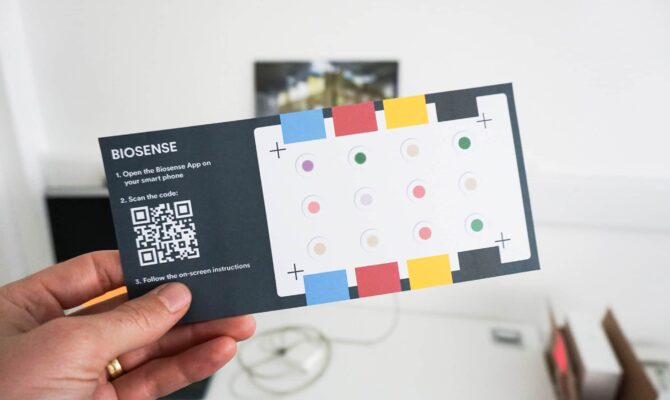Helix Centre
Company Biography
The Helix Centre exists to drive progress and keep moving forward, our mission is to achieve high quality care for all, worldwide and at scale. We are an interdisciplinary group of designers, technologists, clinicians and researchers. We use human-centred design to rapidly dissect problems, identify opportunities, and develop clinically-evaluated digital solutions.
Discipline
Digital, Product, Research, Service
Location
Greater London
Employees
10-25
Work showcase

Biosense - emerging diagnostic technology
Cell-free biosensors are an emerging diagnostic technology. Here is how they work: DNA is engineered to create proteins that react to the presence of specific biomarkers for infection or disease. The resulting ‘cell-extracts’ are freeze- dried onto a paper substrate to make them safe and easy to use, distribute and store. To the patient, they are low-cost, colour-changing tests that could work with saliva, urine or similar samples. This technology has enormous global potential to power new point-of-care diagnostics across high, low and middle income countries.
Potential applications for the technology are wide and varied, from helping to tackle antimicrobial resistance (AMR) to increasing access to diagnosis of sexually transmitted infections.
We are using a design-led approach to look for the most promising uses of this technology in healthcare, and collaborating with our synthetic biology colleagues at Imperial College London to introduce these groundbreaking products into people's lives.
One group who could benefit from such a test is people living with Cystic Fibrosis, who are vulnerable to bacteria that infect the lungs, including Pseudomonas aeruginosa. According to the World Health Organisation, this is the second-most critical “priority pathogen” for antibiotic discovery in existence and, given its ability to resist treatment, it is widely recognised as a complex therapeutic challenge. An at-home diagnostic test used on a regular basis to screen for P. aeruginosa biomarkers could lead to more effective treatment, helping people maintain health and avoid hospitalisation.
Synthetic biologists, led by Professor Paul Freemont, are developing a cell-free biosensor to detect a specific P. aeruginosa biomarker. In a pilot project carried out by our combined teams, we explored user requirements for the at-home use of a diagnostic test with people with cystic fibrosis through interviews, concept prototypes and feedback.
